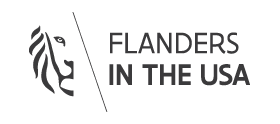The educational system in Flanders prepares young people to perform optimally in a rapidly changing and increasingly internationally oriented society. The system’s excellence is confirmed by the results of the PISA project – the Program for International Student Assessment, coordinated by the OECD – which measures the scholastic performance of 15-year-olds in 57 countries in reading proficiency, problem-solving skills, and mathematic and scientific knowledge. Belgium’s higher education system ranks fifth in the World Economic Forum’s Global Competitiveness Report 2017-2018, while its management schools ranked third. When it comes to mathematics and science education, Belgium is third in the world.
Flanders has numerous international schools, for example, the Antwerp British School and the Antwerp International School, the International School of Brussels and the British School of Brussels and the College of Europe in Bruges, which provides university-level courses and houses the international research and training center of the United Nations University. Ghent opened an international school in 2012, and the city of Leuven, KU Leuven and IMEC research center recently established an international private primary school that offers courses in English.
Flanders has five public universities: Leuven, Antwerp, Ghent, Hasselt and Brussels. KU Leuven, with more than 32,000 students, is the largest and the oldest in the Low Countries, followed by Ghent University, which has nearly 30,000 students. Three of these universities feature in the Times Higher Education World University Rankings 2015-2016: KU Leuven, Ghent University and the University of Antwerp. Academic excellence is also a core value of Flanders’ business schools and university colleges.
The standard of education in Flanders today is one of the highest in Europe, and it is steadily improving. In recent years, there have been rapid developments and structural changes in higher education. Universities and university colleges are grouped in associations. As from 2004-2005 they operate within the so-called European Higher Education Area (EHEA), formed by the Bologna process, which has initiated a uniform European framework of studies, offering Bachelor and Master degrees.
Bachelor
Bachelor programs in Flanders may be either professionally or academically oriented. Professionally oriented bachelor programs are primarily aimed at practicing a profession and offer direct access to the labor market. Academically oriented bachelor programs focus on a broad academic education or an education in the arts. They aim at offering access to a master program or to the labor market. Both professionally and academically oriented bachelor programs consist of at least 180 credits. In theory, a student takes 60 credits a year, but variations are possible.
Master
Master programs focus on advanced scientific, artistic knowledge, competences which are needed for the independent practice of science or arts, or for practicing a profession. A master program consists of at least 180 credits, including a master thesis. An institution of higher education can, in addition to a general master, also offer a research master, which consists of 120 credits.
Ph.D.
Doctor is the highest level of specialization in scientific research. It is based on an original research project that takes at least two years, resulting in the public presentation of a doctoral thesis. This degree can only be awarded by universities.
Foreign Diploma Recognition
If you have a foreign diploma and wish to continue your studies or work in Flanders, NARIC Flanders can provide assistance for the recognition of foreign diplomas and certificates. You can also contact NARIC-Flanders for the professional recognition of a foreign teaching diploma that you acquired in the European Economic Area or in Switzerland.
International Study Programs in Flanders - Study in Flanders
Flanders provides excellent study programs and can boast first-rate student facilities. The internationally-oriented educational institutes offer joint degree programs and are known for their strong language courses. More detailed information on programs in English, admission requirements, student visa and tuition fees can be found here.
